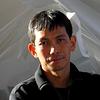Take a photo of a barcode or cover
enjoyed this immensely.. It was fun listening to Kei tell stories of Jamaican folklore and putting his own spin on things.. The cartographer's tale was told in a few poems with some poems that had nothing to do with his journey. Will be reading and listening to more of Kei's works
hopeful
reflective
slow-paced
Graphic: Racial slurs, Racism, Violence
Moderate: Genocide, Hate crime, Slavery
The Cartographer says no
What I do is science
I show the earth as it is without bias
I never fall in love
I never get involved with the muddy affairs of land
Too much passion un-steadies the hand
I aim to show full of a place in just a glance.
Poetry is not my forte but I liked the concept of the book.
We live in a divided world and want to make it ideal. We do not want to see divisions that are made by people and want to consider the world to be a big colourless blob. But are you doing the correct thing?
Poetry can bring out various reactions and although I don't find the book great, it is a nice one.
What I do is science
I show the earth as it is without bias
I never fall in love
I never get involved with the muddy affairs of land
Too much passion un-steadies the hand
I aim to show full of a place in just a glance.
Poetry is not my forte but I liked the concept of the book.
We live in a divided world and want to make it ideal. We do not want to see divisions that are made by people and want to consider the world to be a big colourless blob. But are you doing the correct thing?
Poetry can bring out various reactions and although I don't find the book great, it is a nice one.
inspiring
reflective
medium-paced
I could not put this collection down. When I came to the end I returned to page 1 because I didn’t want it to be over. It’s beautiful...the use of language, metre, shape, and the journey through the book we’re incredible.
“Know this, that lions who trod don’t worry bout reaching Zion. In time is Zion that reach to the lions.”
hopeful
informative
inspiring
fast-paced
Miller blends historical accounts, folklore, and local tradition to create a beautiful account of what Zion could be.
Minor: Death, Blood
“you cyaa climb into zion on anansy web”
i loved everything about this. the dialogue between the rasta and the cartographer; the lyrical way in which the collection was written; seeing jamaica from both the same and different perspectives— truly great work"
i loved everything about this. the dialogue between the rasta and the cartographer; the lyrical way in which the collection was written; seeing jamaica from both the same and different perspectives— truly great work"
An expertly crafted book of poetry, full of heartfelt knowledge of a place that the author has left to reside elsewhere. The cartographer and the rastaman represent two different ways of knowledge, one rational and calculating, representing an imperialistic perspective, the other mystical and musical, representing a local resistance. If--even in the evidently sincere clash of views, perhaps expressing the conflict in the author--some of the poems feel overly explanatory (the Place Names poems, for instance, even though the explanations may be more invented than real), conceding too much to the ignorant curiosity of Western minds, the collection is still suffused with a strong sense of self-discovery and self-making, which asserts the autonomy of the post-colonial subject. My favorite poem, which does not explain too much, is the extremely moving "My Mother's Atlas of Dolls." Here, the author is not trying to justify himself, but attempting to do justice to one who has never left.
‘The Cartographer Tries to Map a Way to Zion’ presents as a contrasting dialogue between a cartographer (mapmaker) and a Rasta; both using their own methods to ‘map a way to Zion’.
Using scientific methodologies the cartographer arbitrarily maps out the land in order “...to untangle the tangled...” (i.e. civilise). On the contrary the Rasta places emphasis on the importance of community; taking a more laidback approach to determining what and where Zion is.
Many of the poems add to colonial discourse, with the cartographer’s role being to “...make visible all them things that shoulda never exist in the first place like the conquest of pirates, like borders, like the viral spread of governments”.
I really enjoyed the poems that delved into the hidden history of place names in Jamaica. In its totality this is a really good cohesive collection that I look forward to coming back to.
Using scientific methodologies the cartographer arbitrarily maps out the land in order “...to untangle the tangled...” (i.e. civilise). On the contrary the Rasta places emphasis on the importance of community; taking a more laidback approach to determining what and where Zion is.
Many of the poems add to colonial discourse, with the cartographer’s role being to “...make visible all them things that shoulda never exist in the first place like the conquest of pirates, like borders, like the viral spread of governments”.
I really enjoyed the poems that delved into the hidden history of place names in Jamaica. In its totality this is a really good cohesive collection that I look forward to coming back to.









